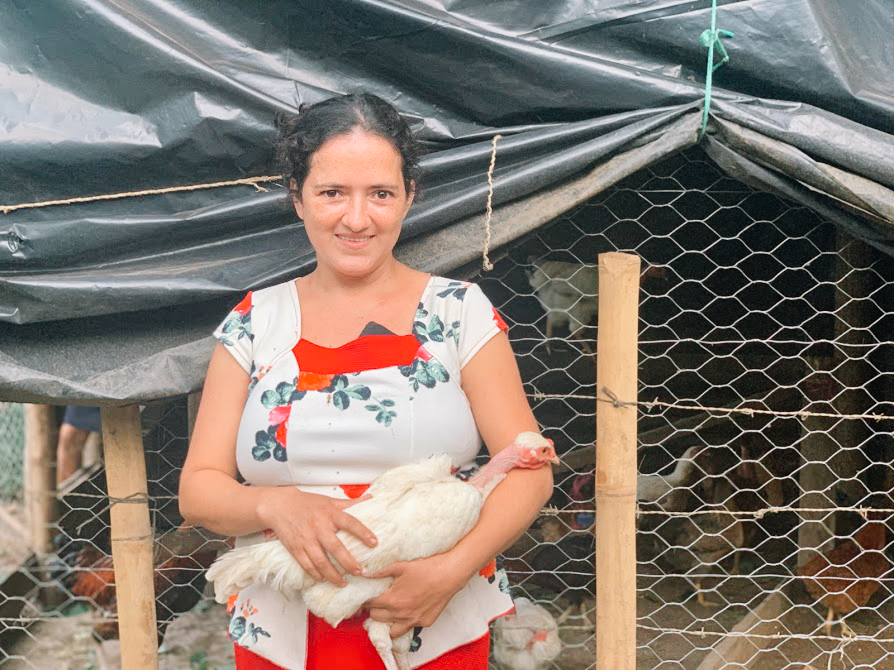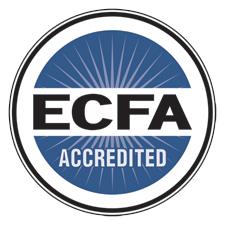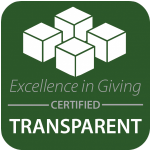It is an innate desire for parents to provide adequate nutrition for their children, but many parents who live in extreme poverty experience shame or devastation when they cannot fulfill this desire. When parents learn how to cultivate their land or grow animals to sustain themselves, the positive effect in communities will transform their future.
Children’s HopeChest’s mission is to restore dignity to vulnerable children and their communities and enhance their self-sustainability. Agriculture and animal husbandry projects support impoverished individuals in a community to take ownership of raising crops or animals and break from the dependency on others to give them food.
HopeChest Guatemala has launched a new economic development initiative in the Cuyotenango and Ceiba Blanca communities. The objective is to train families how to raise chickens and then start a business to improve family income.
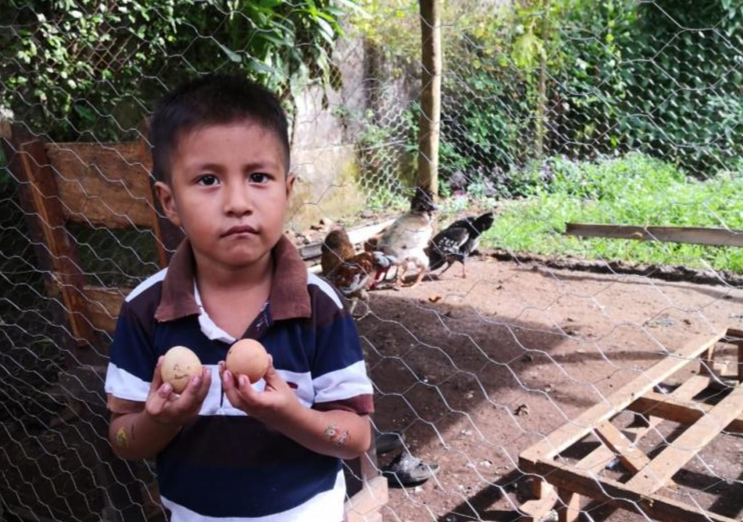
The project goals are:
- To empower and dignify women by teaching them the skills and providing the tools necessary to generate additional income to support their families.
- To create a community within the community.
- To teach each woman in different areas of life with Christian principles.
- To create a model that can be replicated with other families in the community after the initial six-month cycle.
For the past year, HopeChest Guatemala has been proactively working to implement a project like this. We are partnering with a specialist, Gezer Perez, to help us with the technical knowledge and experience in animal husbandry projects. He is an Agricultural Engineer with eight years of experience in these kinds of projects. He loves God and sees these projects as part of the mission we, as Christians, have been called to do.
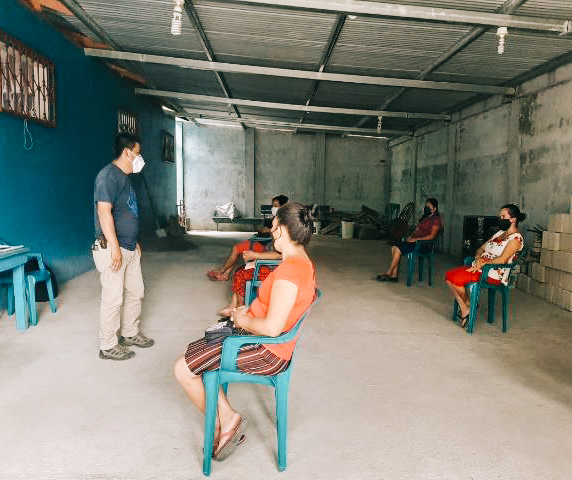
This dream became a reality for two communities, Cuyotenango CarePoint and Ceiba Blanca CarePoint, as they pioneered this new initiative. Cuyotenango started this project with 16 families, and Ceiba Blanca with 15 families. Women apply to be part of the project, and then after a careful and intentional selection process, the community leadership team identifies the women who will be accepted. This project is managed by the mothers of the children who participate in the HopeChest programs, because they usually have more experience than men in raising and taking care of animals.
Once the group of participants is assembled, each family will proceed to build their own coop with wood that they provide themselves. Gezer supervises the construction of these coops, as they must meet specific standards to assure the success of the project and to protect the chickens from rain, sun, disease, or theft.
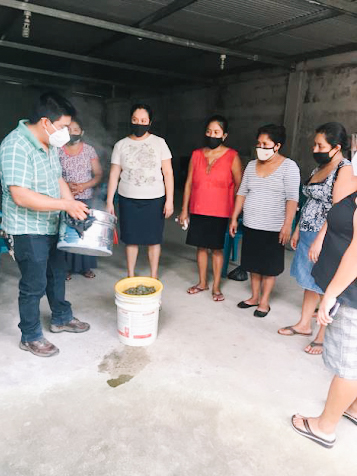
Daily, each family cleans the coop, cares for the chickens, and follows Gezer’s instructions. He teaches each family how to make the chicken feed from corn, soy, salt, and sugar, which help the eggs grow rich in calcium. The women will also learn how to prevent the most common poultry diseases using preventive medicine and vaccines.
The first training and meeting was the first weekend in August, and the project ran for seven months. During this time, HopeChest visited each family weekly to monitor how the project was going. If challenges were found during the visit, they were solved immediately.
Each family received 15 hens and one rooster and participants signed an agreement to not sell, eat, or give away any chickens during the seven-month period. However, the families can consume the eggs, or they can sell the surplus to help with their financial situation. These guidelines create “Food Sovereignty” for the family, which is achieved when they are not only able to have food security, but can also decide to contribute to their economies.
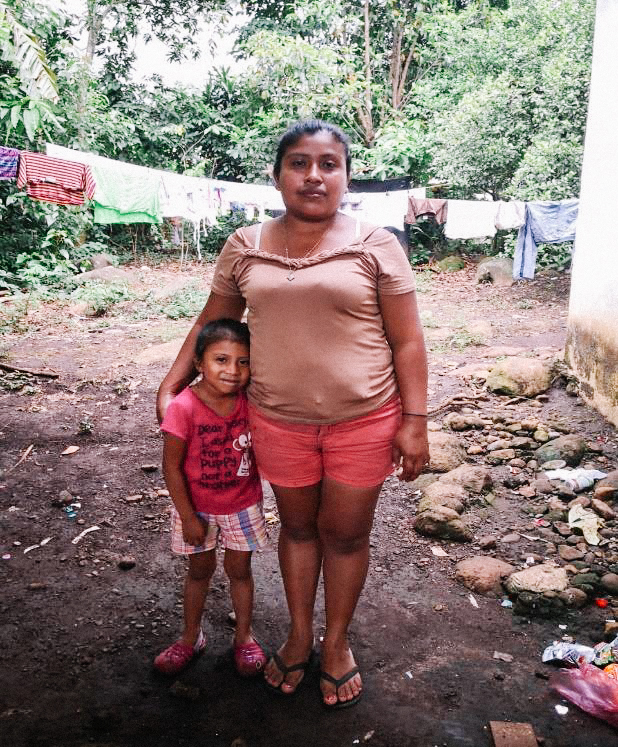
At the end of the project, each family will give $60 back to the project for the next group of women. It is important that each family is involved in making this project sustainable for the next group of women.
After seven months of hard work and a lot of time invested, the families of the project graduated. It was a time of celebration, when we thanked God in the first place and celebrated the effort of each woman and family participating. You could feel the sense of dignity flowing in the air. For some of them, it was something they could never have imagined doing. For others, it was just the feeling of accomplishment.
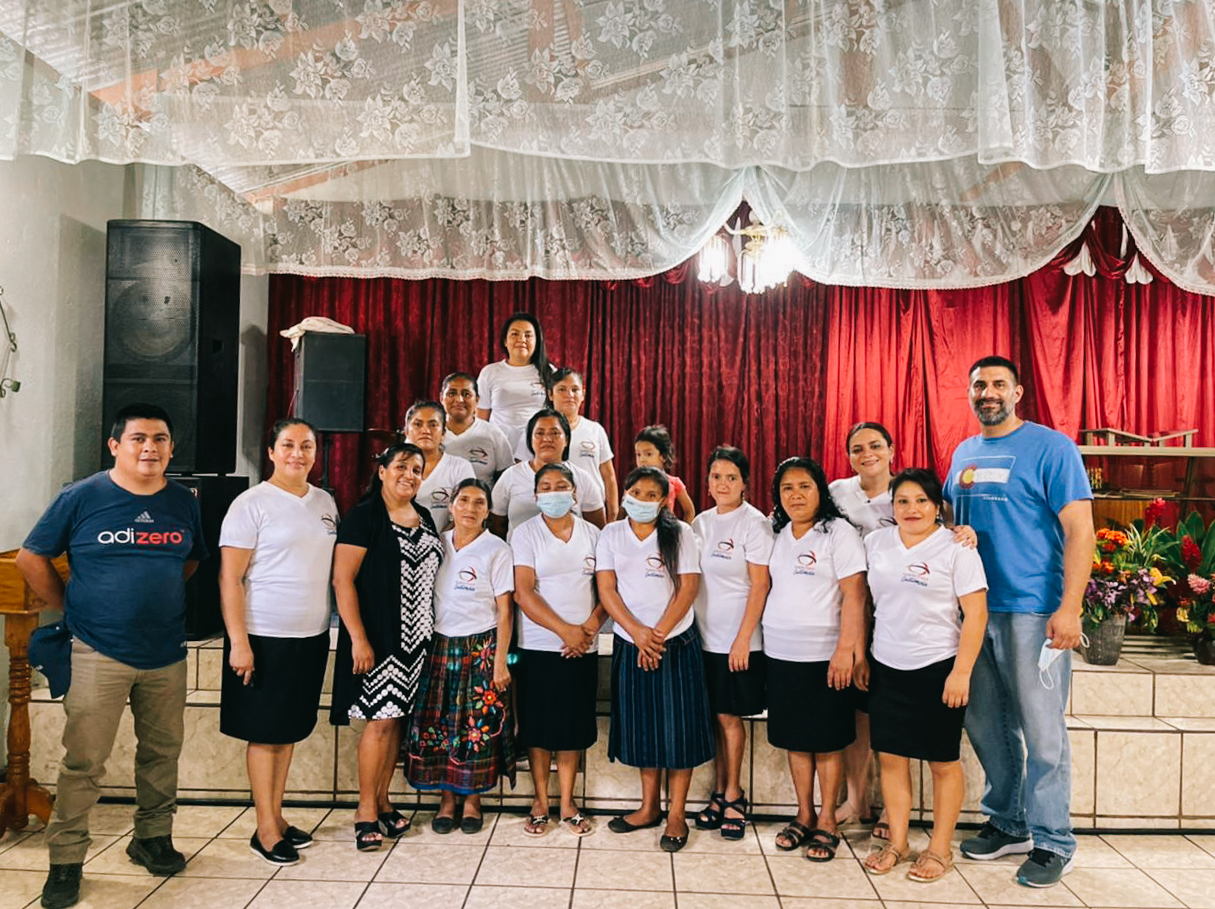
They now are selling eggs, eating eggs, and beginning to sell some chickens. They know how to run a business to sustain themselves and give better opportunities for their families.
This is a dream come true for the communities and, of course, for us as HopeChest Guatemala. Watch a video from HopeChest Guatemala, featuring three women whose lives have been transformed through this incredible project!
Explore animal husbandry and agricultural projects that you can help support on the HopeChest 12 Areas of Transformation wheel!

